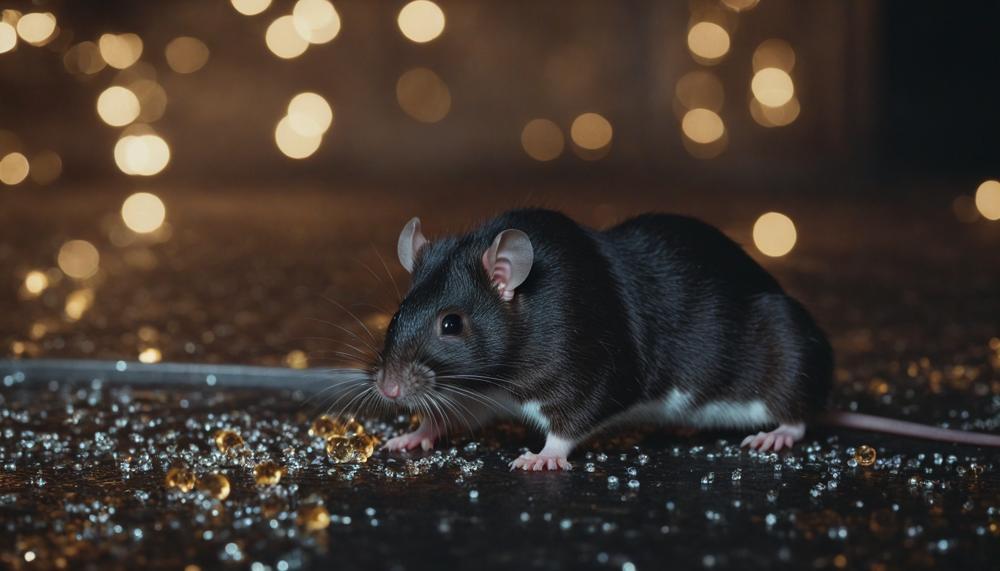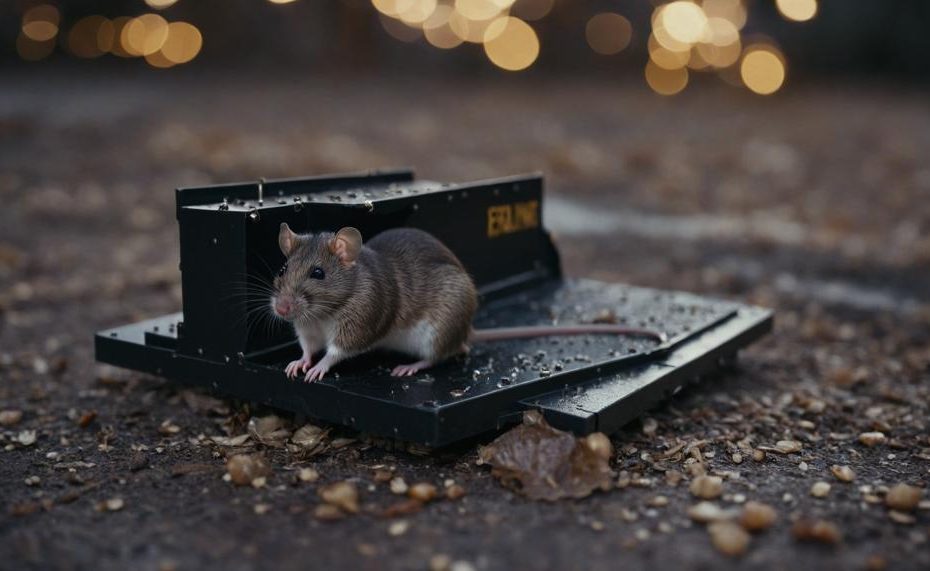Yes, but with significant restrictions and ethical concerns.
Rat glue traps, while legally available in many areas, are highly controversial due to their indiscriminate nature and potential for causing severe suffering. These traps can catch not only rats but also non-target animals, including protected species like birds, bats, and even pets. Their use has sparked intense debate among animal welfare groups and policymakers.
Key Takeaways:
- Legality: Rat glue traps are legal in many places but come with strict regulations to mitigate cruelty.
- Risks to Non-Target Animals: These traps often harm unintended wildlife and pets, raising ethical and conservation issues.
- Regulations: In some areas, it is mandatory to check traps frequently and ensure humane disposal of trapped animals.
- Public Awareness: Many users lack the knowledge to handle these traps properly, potentially leading to illegal and inhumane outcomes.
Understanding the legal and ethical landscape of rat glue traps is crucial for anyone considering their use. The ongoing discussion around their impact highlights the need for more humane and effective pest control solutions.
Table of Contents
Implication Of Using Rat Glue Traps
The legal implications of using rat glue traps can be complex and vary significantly depending on the location. Here’s a detailed look at how these laws differ and what users should be aware of.
Legal Implications of Using Rat Glue Traps
| Location | Legal Status | Details |
| California | Banned | California has stringent animal welfare laws that prohibit the use of glue traps due to the inhumane suffering they cause to trapped animals. Violators can face fines and penalties. |
| New York | Restricted | New York allows the use of glue traps but with specific regulations. Users must follow guidelines on humane treatment, including regular monitoring and proper disposal methods. |
| Texas | Permitted with Conditions | In Texas, glue traps are legal but regulated to ensure they are used responsibly. There are requirements for regular inspection and humane disposal of trapped animals. |
| UK | Heavily Restricted | The United Kingdom enforces strict regulations on glue traps, requiring users to obtain licenses and follow stringent guidelines to minimize animal suffering. |
| Australia | Banned | Australia has banned the use of glue traps nationwide due to ethical concerns and the potential for significant animal distress. |
Explanation and Detailed Insights
The variation in legal status across different regions reflects differing attitudes towards animal welfare and environmental protection. Here are some key points to consider:
- Animal Welfare Concerns: Many jurisdictions, influenced by organisations like the Humane Society, view glue traps as inhumane because they can cause prolonged suffering to animals. This has led to outright bans in some areas and stringent regulations in others.
- Environmental Regulations: Proper disposal of glue traps is critical to avoid environmental contamination. States like New York mandate specific disposal methods to prevent harm to wildlife and the ecosystem.
- Federal Laws: In the US, the Animal Welfare Act does not specifically address glue traps but promotes the humane treatment of animals. Compliance with federal guidelines ensures users adhere to broader animal welfare standards.
- Consumer Awareness: Warning labels and consumer education are crucial. Some states require warning labels on glue traps to inform users about their potential hazards and proper usage. This aims to reduce misuse and encourage more humane pest control methods.
- Enforcement: The enforcement of glue trap regulations varies. While some areas have strict penalties for misuse, others rely more on consumer education and advocacy by animal rights groups to promote ethical practices.
How to Help you Evaluate Its Userfulness?
Determining if this page about the legality of rat glue traps is useful hinges on several key factors. Here’s a detailed breakdown to help you evaluate its usefulness:
Factors to Consider
| Aspect | Explanation | Details |
| Legal Information | Provides comprehensive legal guidelines on the use of rat glue traps | This page outlines local regulations, state laws in the US, and the differences in legal status across various regions, helping you understand the specific rules in your area. |
| Ethical Considerations | Discusses the ethical implications of using rat glue traps | The page details animal cruelty concerns, highlighting why some countries have banned or restricted these traps. It encourages humane pest control alternatives. |
| Safety Guidelines | Offers safety and responsible use instructions | Includes tips on safe placement, monitoring, and humane disposal of trapped animals. Also covers precautions to protect children and pets. |
| Alternatives to Glue Traps | Explores other humane pest control methods | Suggests various alternatives that are both effective and considerate of animal welfare, offering a broader perspective on pest control. |
| External References | Links to credible external sources for further information | Provides trusted links such as Wikipedia and animal welfare organizations for additional reading. |
Detailed Analysis
- Legal Clarity: The page offers in-depth insights into how rat glue traps are regulated, with specifics on state and local laws. This is crucial if you need precise legal information to avoid fines or legal issues.
- Ethical Insights: If you’re concerned about the welfare of animals, the page addresses the ethical dilemmas associated with glue traps, presenting you with a moral perspective that may influence your pest control decisions.
- Practical Safety Tips: For those planning to use these traps, the page provides valuable advice on safe and responsible use, ensuring you understand how to minimize risks to non-target animals and humans.
- Alternative Solutions: By suggesting other humane pest control methods, the page broadens your options, allowing you to choose a solution that aligns with both your ethical standards and pest control needs.
- Credibility: The inclusion of external links to reputable sources enhances the page’s reliability, offering you additional avenues to explore and verify the information presented.
Services and information
For those seeking information about the legality of rat glue traps, several services and resources are available to provide guidance:
- State and Local Government Websites: Many states and municipalities have official websites that detail the local regulations concerning glue traps. These sites often include legal texts, FAQs, and contact information for further inquiries. Check your state’s Department of Agriculture or Environmental Protection Agency website for the most accurate information.
- Animal Welfare Organizations: Organizations like the Humane Society of the United States and PETA offer extensive resources on the ethical implications and legal status of glue traps. They often provide updated lists of states and municipalities that have banned or restricted their use.
- U.S. Environmental Protection Agency (EPA): The EPA regulates glue traps classified as pesticides and provides guidelines to ensure safety and humane treatment. You can find relevant regulations and safety information on the EPA’s official website.
- Legal Assistance Services: Consulting with a local attorney who specialises in animal law or environmental regulations can provide personalised legal advice and help navigate complex legal landscapes.
- Libraries and Educational Institutions: Public libraries and universities often have resources and knowledgeable staff who can assist in finding up-to-date legal information regarding glue traps.
- Online Legal Databases: Platforms like Westlaw or LexisNexis offer comprehensive legal databases that include statutes, case law, and regulations pertinent to glue traps. These resources are often accessible through libraries or legal subscriptions.
Government activity

Yes, there are government regulations and laws regarding the use of rat glue traps in various regions.
| Region | Regulation/Law | Details |
| United States | Glue Trap Prohibition Act | Proposes a nationwide ban on the possession and use of glue traps for catching rodents. |
| United Kingdom | Wildlife and Countryside Act 1981 | Prohibits the use of glue traps under certain conditions to protect wildlife. |
| New Zealand | Animal Welfare Act 1999 | Includes regulations that effectively ban the use of glue traps. |
Support links
Answer: Yes, the legality of using rat glue traps varies by region, and it is vital to consult local regulations. Below are links to reputable sources that support the legality of using rat glue traps:
- National Pesticide Information Center: Offers detailed information on the regulations and safe use of glue traps. Visit the National Pesticide Information Center for more details.
- Environmental Protection Agency (EPA): Provides guidelines on pest control and the use of traps, including glue traps. Check their recommendations here.
- Rentokil Pest Control: A leading pest control company with resources on legal and effective pest management techniques. Explore their guidance on glue traps here.
Legality and Use of Rat Glue Traps
| Source | Information | Link |
| National Pesticide Information Center | Detailed guidelines on safe and legal use of glue traps | Visit |
| Environmental Protection Agency (EPA) | Recommendations for pest control, including glue traps | Visit |
| Rentokil Pest Control | Professional advice on legal pest management techniques | Visit |
These sources provide comprehensive information on the legal use of glue traps and offer practical advice for their safe and humane application.
Conclusion
Rat glue traps remain legally available in many regions, yet they carry significant restrictions and ethical concerns. These devices are often criticized for their indiscriminate nature, capturing not just rats but also non-target animals such as birds, bats, and pets. This unintended harm has stirred vigorous debates among animal welfare advocates and policymakers.
The legality of rat glue traps varies widely. While they are permitted in some places, their use is tightly regulated to mitigate cruelty. For instance, jurisdictions may require frequent monitoring of the traps and humane disposal of the trapped animals. However, the lack of public awareness and proper handling often results in inhumane outcomes, further fueling the controversy.
The ethical landscape surrounding glue traps underscores the need for more humane pest control methods. As awareness grows, so does the push for alternative solutions that balance effectiveness with compassion. The ongoing discussions highlight a critical need for responsible pest management practices that minimize harm to all animals and protect biodiversity.






